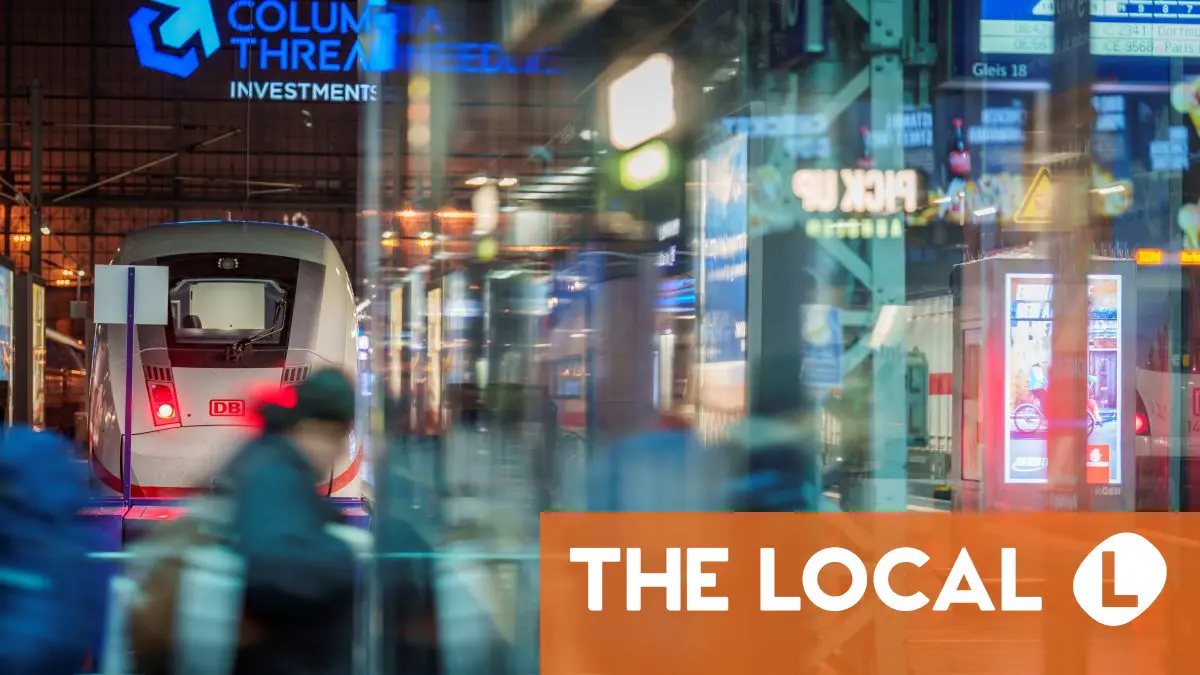A majority of women have reported feeling unsafe in German cities, especially in areas around train stations and night clubs. As The Local reported, this is a feeling shared by many foreign residents in the country.
Chancellor Merz appears to believe that increasing the speed and volume of deportations will solve this problem. “There is still a problem in the Stadtbild (cityscape) and that’s why the government is working to carry out more deportations,” he said.Â
Those comments angered many readers of The Local, many of whom suggested they felt very safe in German cities.
We asked our readers what they think should be done to make urban areas in the country safer and more welcoming for all.
From advocating for better social services to proposing policy reforms and supporting integration, the responses we received reveal a community invested in the wellbeing and future of the cities they call home.
While some respondents agreed with Merzâs assessment â such as Javier Torres from Berlin, who called for âmore deportations, more thorough crime penalties, and a crackdown on radical ideologiesâ â the majority expressed disappointment, frustration, or outright anger at what they saw as scapegoating.
But rather than focusing on deportations or exclusion, most foreign residents preferred to offer inclusive, practical suggestions for improving urban safety and quality of life in German cities.
Many called for increased support for vulnerable groups, and especially the homeless.
âBetter social services for the homeless, drug users, etc â exactly the type of services that some Berlin districts cut back on in their budgets in recent years,â said Tim from Toronto, living in Berlin.
Janet Leenders, originally from the UK and now in Berlin, agreed: âProvide support for homeless people.â
Anwar Donald George, in Essen, added: âTry rehabilitating homeless people by reaching out with solutions.â
READ ALSO: Berlin introduces knife ban on public transport
More police and stricter controls
A number of respondents advocated for a stronger police presence and better lighting in risk areas.
âBetter lighting at night, especially on dark footpaths, would be appreciated, and perhaps increased vigilance and security at major train stations,â suggested an American in Hamburg.
Some respondents called for stricter penalties and increased surveillance.
âMore cameras, stricter penalties for perpetrators,â said an anonymous respondent in Munich.
âBan drug consumption in public spaces,â added another respondent from Cologne.

Jeffrey Lazar, originally from the USA and now in Germany, said, âAll cities have problems… what matters is how law enforcement reacts.â
Several respondents suggested that more police were need and that they needed take a more active role in preventing crime and drug use.
Integration and engagement
Joan A., originally from the US and now in Hessen, called for âmore opportunities for immigrants to engage and access education and social activities.â
âI volunteer at a refugee centre in my area, that helps immigrants with their German learning,â added Joan. âI have gotten to know many of my students. They are diligent, respectful and grateful for the help that they receive from us. I wish there were more opportunities for locals to meet and get to know our immigrants. I think it would change their perceptions immensely.â
READ ALSO: What to know about talking to the police in Germany
Another respondent, who asked to remain anonymous, said: âMore integration support for immigrants.â
Among the calls for additional support for immigrants were arguments in favour of strict penalties.
M.T., a Canadian living in Oberfranken said: âForeigners who commit crimes need to be deported, as they are ruining the image for the rest.â
More generally, improved mental health support and greater efforts to tackle social exclusion were also mentioned.
âDeal with poverty, social exclusion and drug addiction,â said Richard Kinley, from Canada, now in Bonn.
Problem areas and structural change
Looking at the responses as a whole, it becomes clear that people are looking for solutions both locally and at the national level.
Some respondents, like Adi Sinn in Munich, pointed to the need to clean up or improve particular neighbourhoods.
âClean up ghetto areas,â he said. âFor instance, I live in Munich, and Bayerstrasse is simply a horrible area to walk through.â
READ ALSO: Germany to scrap medical cannabis sales online
Others suggested broader policy reforms.
âIntensify vetting of new visa and asylum applications. Introduce specific criteria for migrants and a point system. Overhaul the social benefits system to incentivise people to become financially independent as soon as possible,â said Pavel Stark, originally from Russia and now based in Frankfurt am Main.
William Darling, originally from Canada and now in Munich, suggested: âLess cars, more services for people who need them.â
Finally, an anonymous respondent from Hamburg argued that a simple change in tone could help.
âIf I could choose any improvement,â he said, âit would be for the government to stop with the moral panic and blame.â
Thank you so much to everyone who completed our survey. Although we weren’t able to use all the responses, we read them all and they helped inform our article. Please feel free to continue the conversation in the comments below.











































Comments